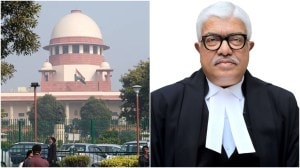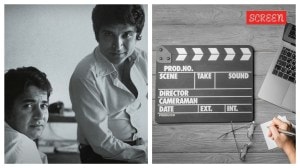Racism, sexism exist in House of Commons: British MPs
Racism still exists in Britain’s House of Commons, considered mother of all parliaments and a beacon of democracy...

Racism still exists in Britain’s House of Commons, considered mother of all parliaments and a beacon of democracy, the only two black women members of the House have claimed.
Dawn Butler, only the third black woman ever to have become an MP said, she faced such frequent racism from politicians of all parties that she had to ‘pick her battles’ to avoid being constantly in conflict with her colleagues.
“I thought that people in Parliament would be progressive. It is still a shock to me that they are not. Over the past 400-plus years, the only black people—and black women in particular—in Parliament have been there to cook and clean. For some politicians, it is still very much a shock to come face to face with a black women with any real power. Racism and sexism is parliament’s dirty little secret,” she told The Observer, the UK’s oldest Sunday newspaper.
Disillusioned by what she has found, she is calling for a dedicated complaints department with the power to suspend politicians and send them on awareness training courses.
Dawn Butler is backed by Diane Abbott, the only other black woman in the Commons, who said that she had suffered 20 years of prejudice. “In the beginning some of it was sheer ignorance. I remember being shocked when a Labour MP asked me once whether we celebrated Christmas in Jamaica,” said Abbott, Labour MP for Hackney North and Stoke Newington.
British lawmaker Butler, who won the Brent South seat in 2005 when she was 35, described how shocked she was by the attitude of a senior Conservative who challenged her right to have a drink on the Commons’ Thameside terrace, a privilege reserved for MPs.
In an article written for the Fawcett Society’s new collection of essays, ‘Seeing Double: Race and gender in ethnic minority women’s lives,’ Butler described how the former Tory minister David Heathcote-Amory confronted her as she went to sit in the members’ section on the terrace. “He actually said to me: ‘What are you doing here? This is for members only.’”
“He then proceeded to ask me: ‘Are you a member?’ And I said: ‘Yes I am, are you?’ And he turned around and said to his colleague: ‘They’re letting anybody in nowadays.’ This man could not equate the image he saw in front of him with that of an MP. It was quite upsetting for my team and so we had to take it further.”
Heathcote-Amory, MP for Wells, however, rejected the allegation that his remarks to Butler in September 2006 were racist.
Zohra Moosa, editor of the Fawcett Society book, said: “With only two black women MPs and not a single Asian woman, Parliament has never once been representative of Britain. There is no excuse for an unrepresentative democracy in this day and age but until we change the way our institutions work, we will never have the politicians we need.”





- 01
- 02
- 03
- 04
- 05


























